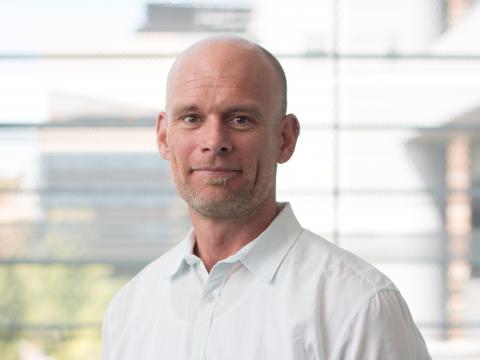
International visitors to Melbourne Genomics have highlighted the power and potential of cross-border collaboration to advance genomics.
In the past two months, two international Experts-in-Residence have visited Melbourne Genomics: Dr James Holman from Genomics England, and Dr Cynthia Powell from the University of North Carolina.
Dr Holman originally led the establishment of Melbourne Genomics’ Information Management work in 2015 and is now the Research Environment Programme Lead for Genomics England, responsible for the secure digital workspace underpinning the 100,000 Genomes Project.
He emphasised the importance that international collaborations can play in quickly addressing similar challenges faced by different organisations. “We’ll be able to solve a lot of these challenges… a lot quicker, together. Even in the short time I was with Melbourne Genomics we noted those sorts of challenges.”
Dr Holman met with key Melbourne Genomics experts, including the Data and Technology Team who have built our shared clinical data system for genomics, bioinformaticians, and the Victorian Department of Health and Human Services. He shared his knowledge and expertise regarding Genomics England’s program, addressing a well-attended seminar held at the Walter and Eliza Hall Institute.
Meanwhile, Dr Cynthia Powell shared her experience leading the North Carolina Newborn Exome Sequencing for Universal Screening (NC NEXUS) project, a five-year NIH-funded project investigating the utility of next generation sequencing in newborns.
Dr Powell, a Professor of Paediatrics and Genetics at the University of North Carolina at Chapel Hill School of Medicine, said she was impressed by the level of State Government support for genomics in Victoria. She said it showed an understanding of the value, as well as the potential value, of clinical genomics research studies to help Victorian patients.
“There really is an understanding of the value of genomics here,” she said. “Thinking about our own States in the US, it’s rare to see so much support from the State level. It’s a really wonderful model of how this can happen, in a State, region or country.”
“Hopefully, we can expand and collaborate,” she said.
